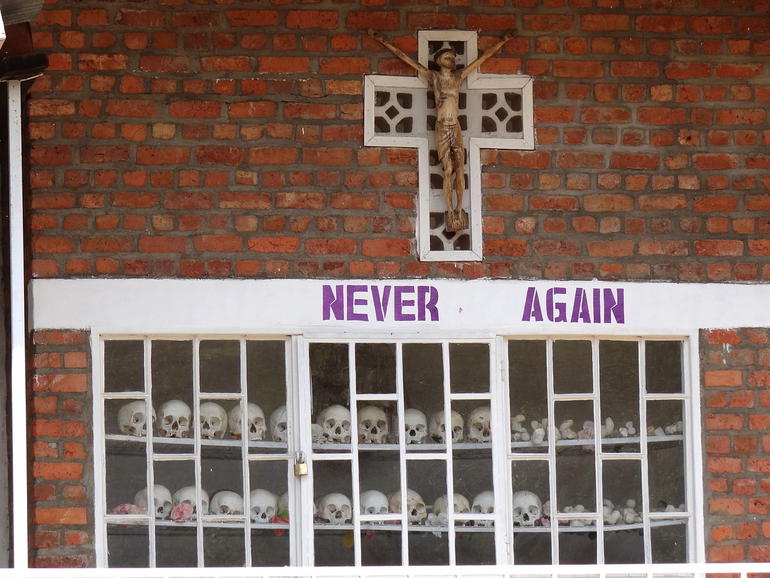Tite Barahirwa, 64, and Octavien Ngenzi, 58, are both accused of genocide and crimes against humanity over the massacre of around 2,000 ethnic Tutsis who had sought refuge in a church in the eastern town of Kabarondo.
Background:
Between April and June 1994, an estimated 800,000 Rwandans were killed in 100 days.
Violence was sparked when the then Rwandan President, Juvenal Habyarimana's plane was shot down above Kigali airport.
He was a Hutu, the majority ethnic group that was ruling Rwanada over the Hutu and the minority Tutsi population.
The Rwandan President, Paul Kagame, has been implicated and accused of leading a Tutsi rebel group.
However Mr Kagame denies this, saying it was the work of Hutu extremists, who wanted to create problems to carry out plans to exterminate the Tutsi community.
Both men deny involvement in the murders.
They both face up to life in prison if convicted.
More than 100 people are expected to testify during the trial in Paris.
It is the second held in France for suspected perpetrators of the Rwandan genocide, under a special UN-approved law allowing France universal jurisdiction for related crimes.
Mr Barahirwa and Mr Ngenzi were arrested separately in French territory.
Around 3,500 Tutis had sought refuge and shelter in a church when it was attacked on April 13th 1994.
That morning Barahirwa allegedly held a meeting in a nearby football stadium where armed ethnic Hutus were ordered to "chase and kill ethnic Tutsis" throughout the town and especially at the church, according to court documents.
The church was attacked by hundreds of militiamen armed with machetes, spears, arrows and bows, bludgeons and studded clubs.
Rwandan armed forces arrived afterwards and used more powerful weapons against the people inside: mortars, bombs, grenades.
One witness told investigators: "Shells were entering the church through the windows and roof, digging holes in the ground. Some people had their limbs torn apart."
Another said: "People were falling again and again."
Once the church door was smashed open, militiamen and soldiers entered the church to ensure everyone had been killed.
Witnesses said both Barahirwa and Ngenzi were present conducting an "ethnic selection" of the survivors, executing those identified as Tutsis.
Barahirwa is accused of killing some of them himself.
Both men are accused of "taking part in a widespread and systematic practice of summary executions, inspired by political, philosophical, racial or religious reasons and organized in execution of a concerted plan against a civilian population group, in this case the civilian Tutsi population".
In the first such trial in France in 2014, Pascal Simbikangwa - a former head of the Rwandan intelligence service - was convicted of genocide and complicity of crimes against humanity and sentenced to 25 years in prison.
He has appealed the verdict.





